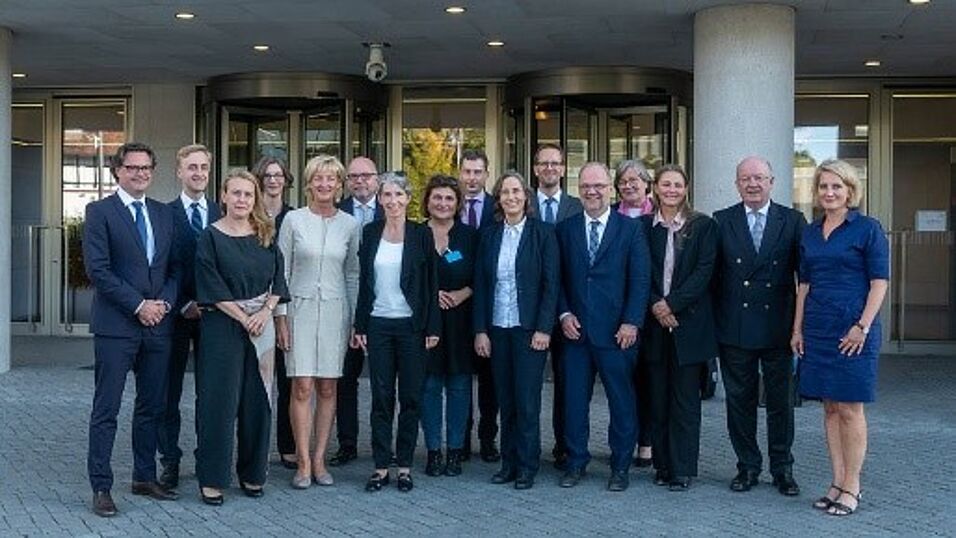Die Bundesregierung hat der Datenethikkommission für die Tätigkeit Leitfragen an die Hand gegeben: Diese Fragen bestimmen den Rahmen, innerhalb dessen die Datenethikkommission unabhängig und eigenverantwortlich ihren Bericht erstellen wird.
Die Bundesregierung hat der Datenethikkommission für die Tätigkeit Leitfragen an die Hand gegeben: Diese Fragen bestimmen den Rahmen, innerhalb dessen die Datenethikkommission unabhängig und eigenverantwortlich ihren Bericht erstellen wird.
